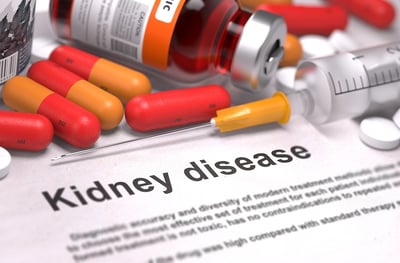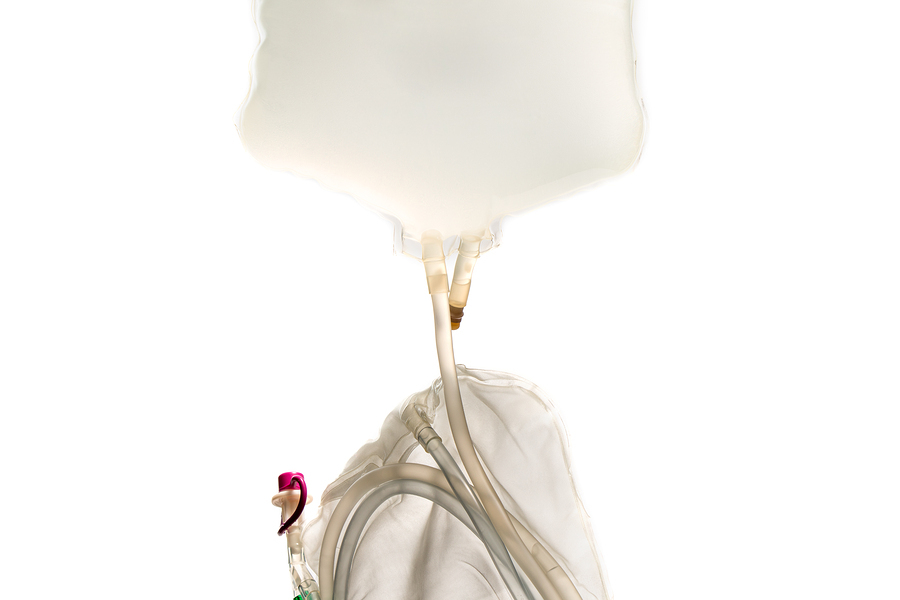One-third of American adults are currently at risk for developing kidney disease, according to the National Kidney Foundation. At increased risk? People aged 60 or older. In fact, of the 26 million people in the United States living with kidney disease, the vast majority are seniors. Let's take a closer look at this common ailment, along with what caregivers need to know to safeguard the health and quality of life of their aging loved ones.

Understanding is a valuable tool toward prevention.
Kidney Disease and Seniors
Two small, bean-shaped organs located in the lower back, the kidneys play a critical role in filtering waste and helping to keep the body's fluids balanced and at normal levels. Kidneys also help with the regulation of blood pressure and red blood cells.
Kidney -- AKA "renal" -- function remains healthy throughout life for approximately a third of the population, but many others begin to experience declines in kidney function around the age of 35. While even damaged kidneys can continue to meet the demands of the body, these changes can also lead to a number of health issues, including increases in waste products and fluid imbalances.
Kidney Disease and Seniors
How common is kidney disease in seniors? A quarter of seniors who visit emergency rooms are found to have electrolyte imbalances caused by sodium levels that are too high or too low. If not corrected, this issue can lead to a number of harmful conditions.
Other forms of kidney disease common to seniors include nephrotic syndrome and renovascular disease.
Kidney Failure: Acute Versus Chronic
When kidneys undergo a sudden change in their ability to function, this is known as acute -- or sudden -- kidney failure. Seniors who have had heart disease, weight management issues, diabetes or liver disease are most vulnerable to this type of kidney disease. While symptoms can be subtle, they may include shortness of breath, excessive urination, skin rashes, frequent fatigue, increased thirst, and management issues with high blood pressure and diabetes.
Also common in seniors, chronic kidney failure occurs when problems slowly build over time. Without lifestyle changes and/or medical intervention, chronic kidney failure can grow worse and worse eventually resulting in end-stage renal disease (ESRD), requiring either a kidney transplant or dialysis, an artificial process through which waste is filtered through an external device.

In end-stage renal disease, dialysis is a life-saving measure.
Risk Factors and Prevention for Kidney Disease
Several factors increase your aging loved one's risk of kidney disease. These include diabetes, high blood pressure, cardiovascular disease, and family history. Because early kidney disease is often symptom-free, it's important for seniors to have their kidney function checked through blood and urine tests -- particularly if they have these risk factors.
Caregivers can also help safeguard loved ones against kidney disease by learning the warning signs, encouraging loved ones to adopt kidney-friendly diet and exercise plans, and helping them monitor their medical problems.
Additionally, physicians can play a critical role in helping to control your aging loved one's kidney disease by working with you to develop a realistic and effective approach to managing the condition.
While kidney disease is a fact of life for many seniors, it doesn't have to be a life-changing one. With the right early detection and treatment mechanisms in place, it's possible to slow or halt the progression of kidney disease.mmLearn.org offers a large library of free videos for caregivers of older adults, covering topics pertaining to senior care. Whether you are a healthcare professional or a family caregiver, if you are caring for an older adult we know that you will find mmLearn.org an essential learning and guidance tool for all of your caregiver training needs.
